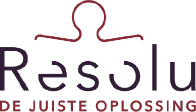A cross-border worker is someone who travels between home and work countries at least once a week. The countries in question are Germany and Belgium. How is it regulated when an employee ends up in absenteeism?
Is the employee insured in the Netherlands?
Then the rules of Dutch social security apply. This means that the employee can usually receive WIA benefits once two years of illness have passed.
After two years, the employer's mandatory wage payment stops. The Gatekeeper Improvement Act applies to this process. Any WGA entitlement will then be attributed to the employer. There are exceptions, however; for example, for employees working in two or more countries or in the case of international secondment.
What are the rules for cross-border workers?
For employees who live in Germany or Belgium, the check can be done by the German Krankenkasse or the Belgian Mutual at the employer's request. These are bodies that regulate health insurance. Of course, guidance may also be provided by a Dutch occupational health and safety service. Travel distance and/or language barrier may be a consideration in this regard. General advice is that an employer who has a lot to do with cross-border workers has a clear absenteeism protocol and pays specific attention to this subject.
Even if an employee completes the two years and is awarded any WIA benefits, the implementing party WGA guidance will perform this guidance from the Netherlands.




